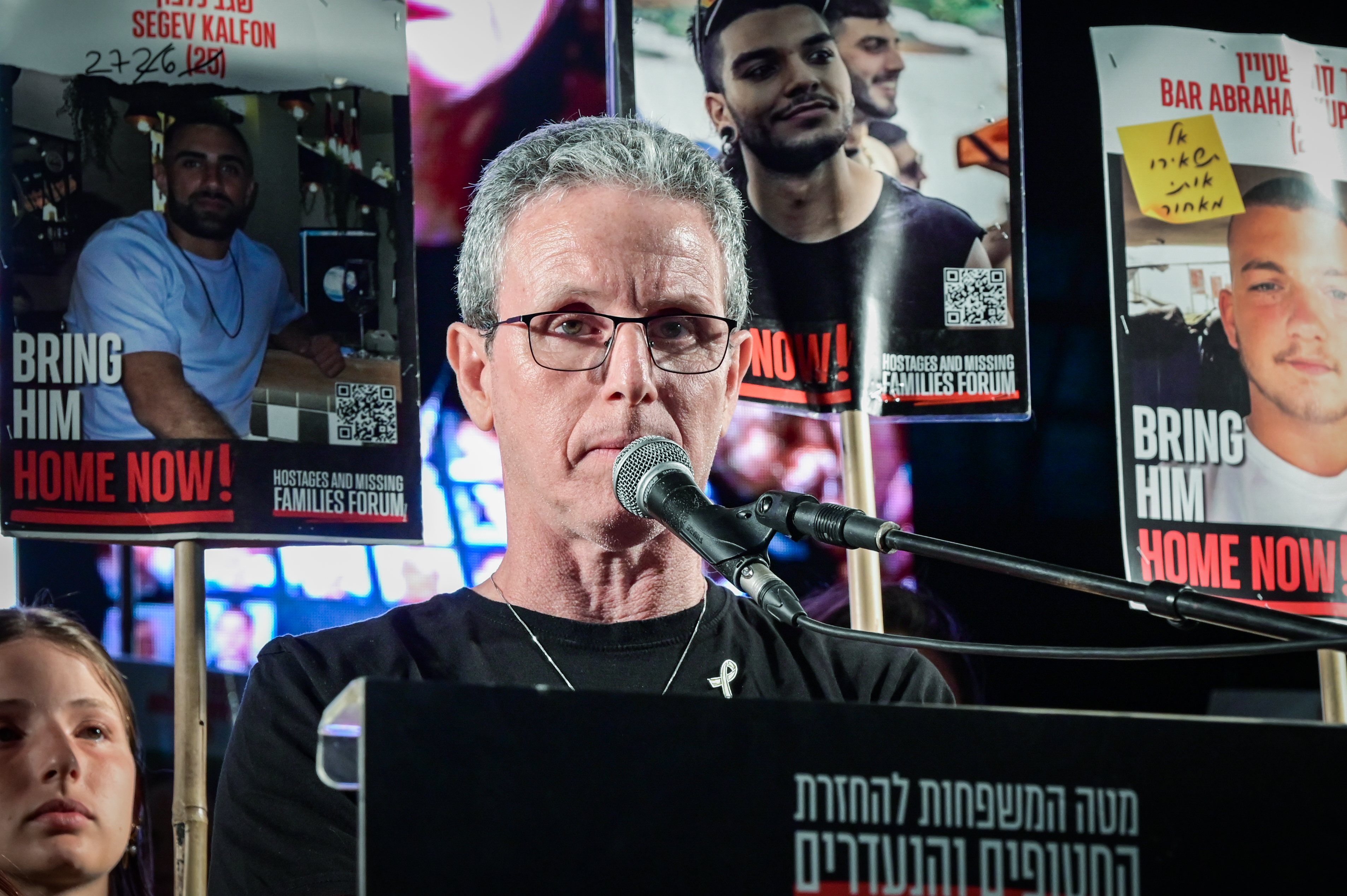Ex Hostage Ohad Ben Ami confesses: "I feel guilty when I eat, because I know those I left behind are starving"
Four months after his release from captivity, Ohad Ben Ami spoke at a special Ichilov Hospital conference in New York about his struggle to recover and those left behind.

Ohad and Raz Ben Ami, survivors of Hamas captivity, spoke to Channel 13 News in an interview aired Sunday evening, discussing their lives since Ohad’s release in the latest deal, their fight to free remaining hostages, and the persistent post-trauma they face daily.
They participated in a special Ichilov Hospital conference at the Museum of the City of New York, in collaboration with Mount Sinai Hospital, to foster international cooperation in preparing for large-scale mental trauma crises.
Raz was freed after 57 days in the first deal, while Ohad endured 491 days in Hamas captivity, spending time with hostages still in tunnels, including Elkana Bohbot, Bar Kupershtein, Yosef Haim Ohana, Segev Kalfon, and Maxim Herkin. He repeatedly mentioned them: “Almost all the videos released were of my friends from captivity. They’re addressing me. The videos are tough, both their physical and mental state. I know what they’re going through inside. I love them, I miss them.”
Ohad criticized the government’s handling of the hostage issue: “In the tunnels, you think, ‘Maybe they don’t know what we’re going through.’ Now I’m out and realize they know, yet they continue like this. It’s insulting as a citizen. They’re leaving you to rot.”
Recalling his abduction on October 7, 2023, Ohad said: “I was sure they were taking me to be lynched. I didn’t know it was a kidnapping. I thought they’d take me to a square for a mob attack. There was a square and an angry crowd, but someone fired in the air, put me in a car, and took me to a tunnel. I was full of adrenaline, thinking, ‘This isn’t happening to me.’”
Ohad continues his recovery, attending Ichilov Hospital in Tel Aviv three times a week. His post-trauma is tied to the hostages still held: “It shows in many ways. You eat from the fridge and realize they have no food. It reminds you of what you went through and what they’re enduring now.”
He added, “Suddenly, you order a taxi, and the driver is Arab. We’ve always supported coexistence and peace, but now I’m tense. I don’t cancel the ride, but I sit on edge. I wake up at night, check the wall to ensure it’s not concrete, that I’m not in a tunnel. But I know they’re still there. Until they’re out, the living and the dead, I can’t move on.”